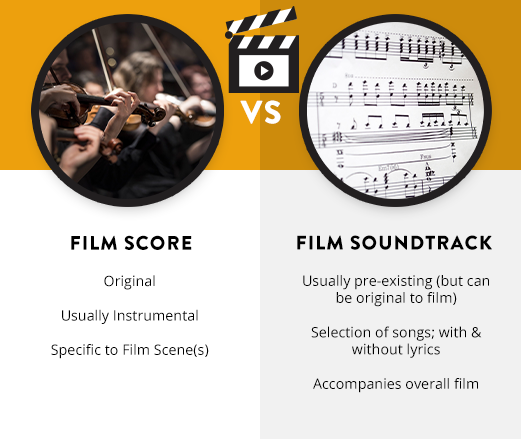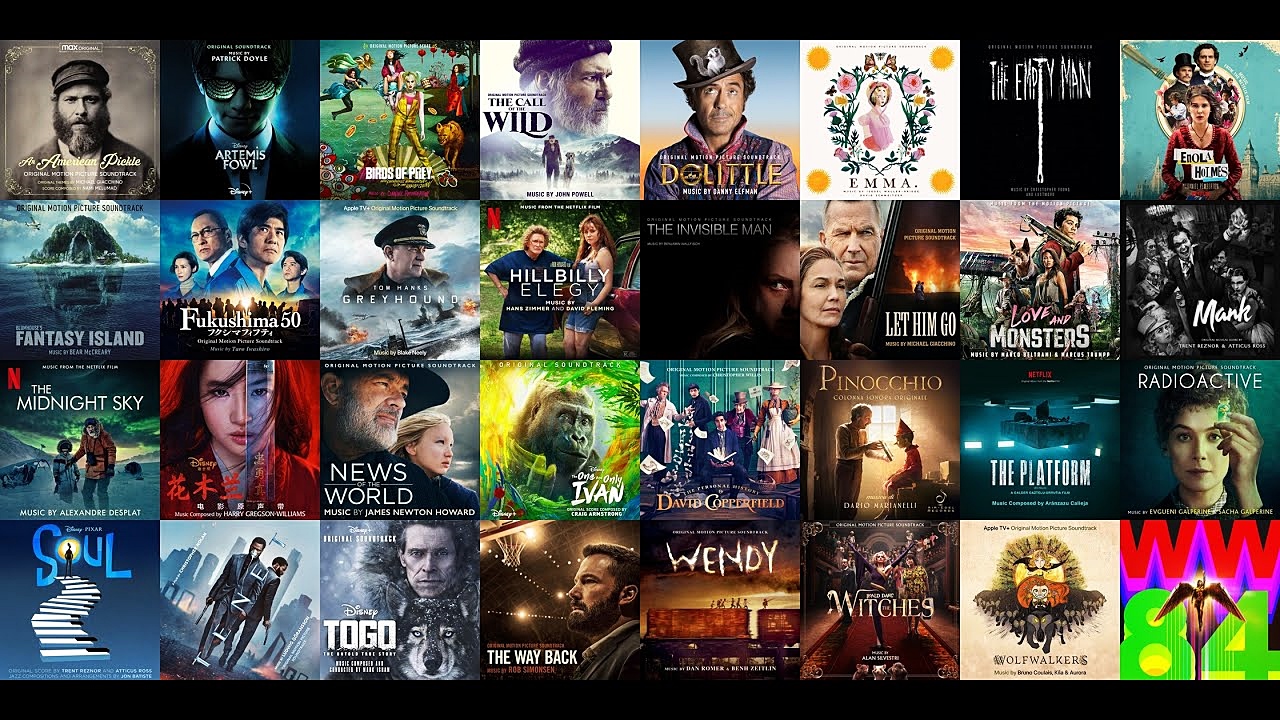The Art of Film Soundtracks & Scores
Music is an essential component of cinema, enhancing storytelling and deeply affecting the viewer’s emotional experience. The combination of visual and auditory elements creates a unique art form that can transport audiences into different worlds. This article explores the intricacies of film soundtracks and scores, diving into their emotional impact, historical evolution, iconic examples, and future trends.

The Role of Music in Film
Emotional Impact of Soundtracks
One of the most powerful aspects of music in film is its ability to evoke strong emotions. A well-crafted soundtrack can make viewers laugh, cry, or feel suspense, often without the need for dialogue. For instance, the stirring score of The Lion King enhances the emotional weight of pivotal scenes, leaving a lasting impression.
Music can be the language of emotion, allowing us to connect to the narrative on a visceral level.
Additionally, studies have shown that music activates areas of the brain associated with emotion, memory, and even physical responses. This is why film scores are often memorable and impactful.
Setting the Tone and Atmosphere
Soundtracks play a critical role in setting the tone and atmosphere of a film. The use of specific musical styles and instruments can transport audiences to different settings and eras. For example, the jazz-infused score of La La Land effectively captures the essence of Los Angeles while paying homage to classic musicals.
- Action scenes often feature fast-paced, dynamic music to amplify tension.
- Romantic moments are underscored with soft melodies that enhance intimacy.
- Horror films utilize dissonant sounds and abrupt shifts in music to create a sense of dread.
By manipulating these elements, composers can guide the audience’s emotional journey throughout the film.
The Evolution of Film Scores
Early Film Scores
The history of film music dates back to the silent film era. During this time, live musicians would perform scores to accompany screenings, creating a unique blend of music and visuals. The transition to synchronized sound in the late 1920s revolutionized the industry, allowing for more intricate and nuanced compositions.
With the release of The Jazz Singer in 1927, the concept of a soundtrack began to evolve. This film was the first to include synchronized songs and dialogue, leading to the development of the modern film score.
The Golden Age of Film Composers
The 1930s to the 1960s marked the Golden Age of Film Composers. Influential figures such as Max Steiner, known for his work on Gone with the Wind, and Bernard Herrmann, who scored Psycho, set new standards for film music. These composers used orchestral scores to create emotional depth and enhance storytelling.

Their scores became synonymous with the films themselves, contributing to the lasting impact of these classics on cinema history.
Iconic Film Soundtracks
Certain film soundtracks have achieved iconic status, leaving an indelible mark on popular culture.
John Williams and Star Wars
One of the most celebrated film composers, John Williams, revolutionized film music with his score for Star Wars. The rousing main theme, characterized by bold orchestral arrangements, has become a cultural touchstone, instantly recognizable to audiences worldwide. Williams’ use of motifs and themes for specific characters adds depth and richness to the narrative, making the score integral to the film’s identity.
Hans Zimmer and Inception
Another standout example is Hans Zimmer’s score for Inception. The score’s innovative use of sound design and deep, resonant tones creates a sense of urgency and complexity that mirrors the film’s intricate narrative structure. Zimmer’s ability to blend orchestral elements with electronic sounds has redefined modern film scoring.
The Process of Scoring a Film
Creating a film score is a collaborative process that involves directors, composers, and musicians. The director’s vision plays a crucial role in shaping the film’s soundscape. Composers often work closely with directors to understand the emotional beats of the film, ensuring the music complements the visual storytelling.
Collaboration Between Composers and Directors
Successful collaborations, such as that of director Christopher Nolan and composer Hans Zimmer, showcase how music can elevate a film’s impact. Nolans films often feature intricate narratives, and Zimmer’s scores provide the necessary emotional backbone, enhancing the overall cinematic experience.
Technology and Innovation in Scoring
Advancements in technology have also transformed the way film scores are created. Modern composers can use digital instruments and software to compose, orchestrate, and produce music, allowing for greater experimentation and creativity. This technology enables composers to produce intricate scores without the need for a full orchestra, making the process more accessible.

As we continue to explore the world of film soundtracks and scores, we will examine their influence on popular culture and what the future holds for this essential aspect of filmmaking.
Stay tuned for the second half of this article, where we delve deeper into the impact of soundtracks on popular culture, explore the future of film music, and summarize the significance of these artistic contributions to cinema.
The Impact of Soundtracks on Popular Culture
Cultural Significance of Film Music
Film soundtracks are not just background music; they often become part of our cultural lexicon. Iconic themes, such as the Imperial March from Star Wars or the haunting melody of My Heart Will Go On from Titanic, transcend their films to influence popular culture. These songs can evoke nostalgia, inspire merchandise sales, and even shape fashion trends.
How Music Influences Viewer Experience
A well-placed soundtrack can dramatically change the viewer’s perception of a scene. For example:
- Romantic Comedies often use upbeat and whimsical soundtracks to create a lighthearted atmosphere.
- Thrillers may employ discordant notes and sharp sounds to keep audiences on edge.
- Documentaries use soundscapes to deepen the emotional weight of the narrative.

The impact of music in film is profound, often leaving viewers with a lingering emotional connection long after the credits roll.
Soundtracks as a Marketing Tool
Film soundtracks have also become significant marketing tools. Many studios release soundtracks as standalone albums, featuring not just orchestral scores but also popular songs from renowned artists. For instance, the Guardians of the Galaxy soundtrack capitalized on nostalgic tunes to attract audiences and create a buzz, demonstrating the power of music to enhance a films branding.
The Rise of Streaming Services and Soundtrack Accessibility
The rise of streaming services has revolutionized the way audiences experience film music. Platforms like Spotify and Apple Music allow fans to easily access their favorite soundtracks, creating new avenues for composers and artists to reach their audiences.
- Playlists and Curated Collections: Streaming platforms often feature curated playlists of film scores, helping to introduce newer soundtracks to wider audiences.
- Increased Visibility for New Composers: Emerging composers can gain exposure through these platforms, enabling a more diverse range of voices in film music.
FAQs about Film Soundtracks and Scores
What is the difference between a soundtrack and a score?
Soundtrack generally refers to a collection of songs that are featured in a film, including both original songs and existing tracks. In contrast, a score is an original composition created specifically for the film, often performed by an orchestra.
How do composers create a film score?
Composers collaborate closely with directors and producers to understand the film’s themes, characters, and emotional arcs. They use this understanding to create music that enhances the storytelling, often composing pieces that correspond to specific scenes or character developments.
Can a film succeed without a good soundtrack?
While a film can still be successful without a strong soundtrack, the emotional impact of music often elevates the viewing experience. A well-composed score can resonate with audiences and leave a lasting impression, contributing significantly to the film’s success.
The Future of Film Scores
As technology continues to advance, the future of film soundtracks and scores is likely to evolve significantly. Here are a few trends to watch:
Integration of Artificial Intelligence
AI is increasingly being used in the composition process, enabling composers to experiment with new styles and soundscapes. AI tools can analyze existing scores to help create music that resonates with audiences, though the human touch remains irreplaceable in terms of emotional depth.
Greater Focus on Diversity and Inclusivity
There is a growing push for diversity and inclusivity in film scoring. This movement aims to bring in voices from different cultural backgrounds and experiences, enriching the film music landscape. Films like Black Panther showcase the power of diverse musical influences in shaping a film’s identity.
Expanding Genres and Styles
As the film industry becomes more globalized, we can expect to see a broader range of musical styles being integrated into film scores. From traditional orchestral compositions to electronic music and world music influences, the future of film soundtracks will likely reflect a rich tapestry of global cultures.
Conclusion: The Lasting Legacy of Film Music
Film soundtracks and scores are more than just auditory accompaniments to visuals; they are integral to the storytelling process, enhancing emotional depth and cultural significance. As we explore new technological advancements and trends, the art of film music will undoubtedly continue to grow and evolve.
Whether it’s the thrilling orchestration of an action movie or the tender notes of a romantic drama, the power of sound in film remains undeniable. The next time you enjoy a film, pay attention to the musicits not just background noise; its a vital part of the cinematic experience.
For further reading, check out Film Music: A Very Short Introduction to explore more about the art and craft of scoring films.

